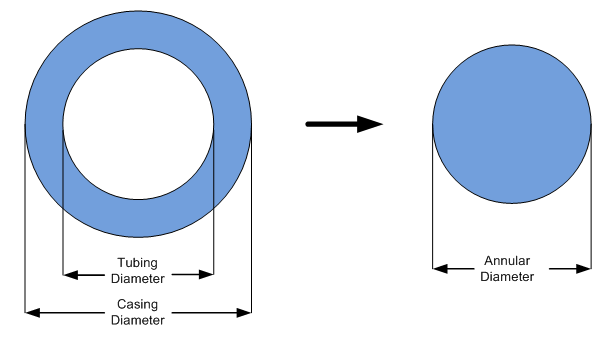Pressure loss calculations for an annulus flow path require some extra steps to complete because the standard cylindrical tube model cannot be directly applied. Instead, the annular space is converted into a single cylindrical tube through the use of one of the following methods:
- Equivalent diameter method
- Hydraulic (or wetted) diameter method

Equivalent diameter
With the equivalent diameter solution, the objective is to find a single tube that has the same cross-sectional area as the annulus. While this method seems logical at first glance, it does not account for frictional differences on both pipe walls (that is, the inside wall of the casing and the outside wall of the tubing).
where:
- D1 = outer diameter of the tubing
- D2 = inner diameter of the casing
Hydraulic (wetted) diameter
With the hydraulic diameter solution, the objective again is to find a diameter for a single tube that represents the annulus, but also accounts for the extra friction that annular flow would experience.
this simplifies down to
where:
- D1 = outer diameter of the tubing
- D2 = inner diameter of the casing